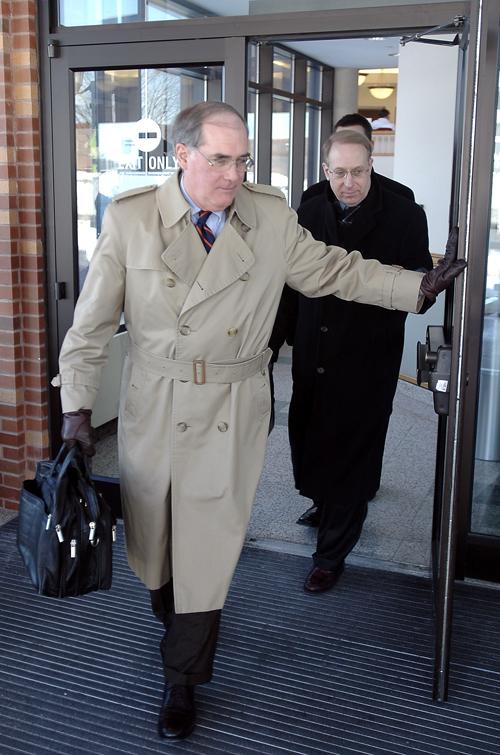Court denies case of Chief portrayers
Feb 19, 2007
Last updated on May 12, 2016 at 08:07 a.m.
Judge Michael Jones decided late Friday morning he would not grant Chief portrayers Dan Maloney, graduate student, and Logan Ponce, sophomore in Engineering, a temporary restraining order against the University’s Board of Trustees and the NCAA.
The temporary restraining order, if granted, would have stopped the University from making the decision to retire the Chief. This type of restraining order is only granted in emergency situations.
“I am not persuaded that the plaintiffs will suffer irreparable harm if the Chief doesn’t perform after the conclusion of the men’s basketball season,” Jones said in his concluding remarks. “It is not appropriate to take action, as of today, against the University of Illinois.”
Brent Holmes, attorney for the plaintiffs, argued that the University’s treatment of this issue has been like some sort of “schizophrenic situation.”
Get The Daily Illini in your inbox!
“The NCAA is using the Board of Trustees to carry out illegal and unlawful action,” Holmes said. “The University of Illinois has had literally a gun to its head now for more than a year.” Holmes also argued that actions of the University are acting against state statute, which says that Chief Illiniwek may remain an honored symbol of the University.
However, Jim Kearns, attorney for the Board, said that this case is just about politics.
“Policy is what the Board does,” Kearns said. “This court does not have power over the University of Illinois Board of Trustees to decide policy.”
Jones also said he did not have jurisdiction over the decisions of the board.
Before argument began on the case, Jones announced to the court his affiliation with the University. Jones said that his wife is an employee at the University, he is a member of the President’s Council and he received his law degree from the University. However, Jones said he would not allow these affiliations to influence his decision on the case.
This decision came only one day after Maloney and Ponce filed a six-count lawsuit against the University’s Board of Trustees and the NCAA, in addition to an application for a temporary restraining order.
“We are pleased the court recognized that the students would not suffer any irreparable harm, and that the judge appropriately denied the temporary restraining order,” the NCAA stated in an official statement. “However, we do feel we not only have the right, but also an obligation, to ensure our NCAA championships are conducted in an atmosphere free of racial stereotyping and one in which all of our student athletes, athletics staff and fans feel comfortable. We will continue to aggressively defend our position.”
During the case, Jones challenged the NCAA about their decision in August 2005 regarding Chief Osceola of Florida State University. Jones said he did not understand how, even though Florida received approval from the Seminole tribe, the NCAA would allow the university to keep their mascot but would scrutinize other universities.
Further litigation would seem to be focused on the NCAA, and the University may be dropped entirely from this case, Kearns said.
Holmes would not comment on the case because there is still pending issues but said it was “too early to tell” what the next step would be.
Further litigation will still take place on the lawsuit.






